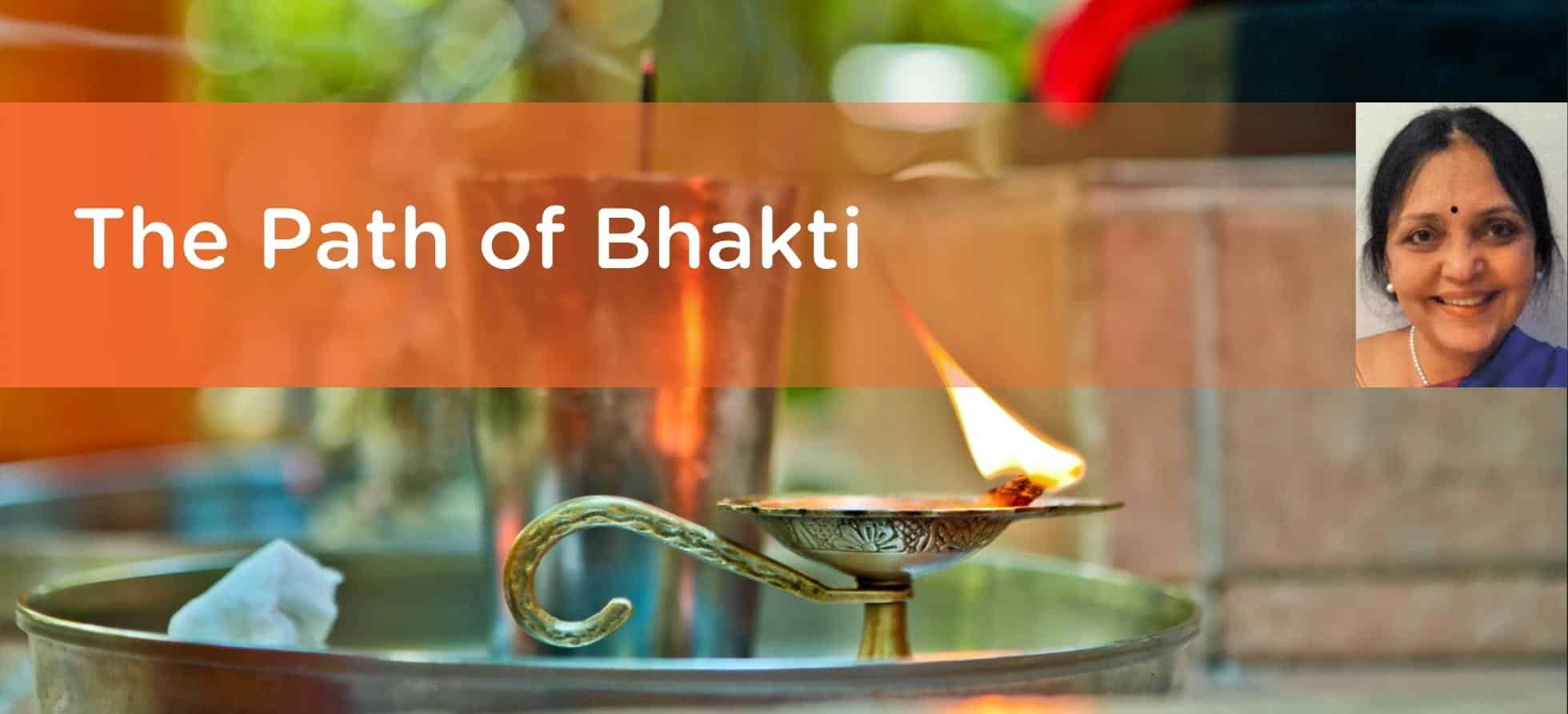
The Path of Bhakti
In the Hindu tradition, Bhakti Yoga is more than simply a way of bringing devotional practices into everyday living. Come learn teachings from the Hindu traditions, including stories of devotion and traditional songs and prayers, as well as philosophical texts and narratives. Together, we will begin to understand the ways in which our daily actions and devotional actions seamlessly flow into each other as we connect simultaneously the deity in the temple and the devotee in the world.
Offered as 3 satsangs and 3 afternoon workshops (subject to change)
Explore the answers, gain a deep knowledge of Vedic Philosophy, and experience the nectar of Divine Bliss with Vasudha Narayanan. Through a series of soul-stirring spiritual discourses, melodious chanting, and interactive sessions, you will discover the importance of the human body, and the nature of Brahman. You will learn about the practices of Bhakti yoga and about the grace of god, self-surrender, devotion, sadhana, and the Guru.
What you’ll learn:
- How to release emotions through chanting
- How to foster concentration and create one-pointedness in the mind
- Stress management through devotional singing
- Increasing positive mood, feelings of relaxation and focused attention
- Promote internal self-healing on spiritual, mental, physical, and intellectual levels with communal and individual chanting practices
- Theory and practice of Bhakti Yoga, the yoga of Divine Love
- Practical tips and instructions for practitioners of Bhakti Yoga
- Bhakti Sadhana and how to develop Bhakti in your daily life
- Spiritual discourse on the definition of Bhakti, the benefits of Bhakti, and the practice of non-attachment
What is Bhakti?
Bhakti Yoga is the path of yoga that is also known as the Yoga of Unconditional Love and the Yoga of Devotion. It is prescribed to those who are interested in finding ultimate peace and joy through the cultivation of unconditional love and complete devotion.
Bhakti Yoga has been used for millennia by yogis and sages as a method for overcoming negative emotions, deepening one’s meditation practice, and reaching enlightenment. Many of us have grown accustomed to experiencing negative emotions in our daily lives, especially over these last two years of global challenges. The ancient spiritual practices of Bhakti Yoga help us to transmute emotions like stress, anxiety, anger, depression into higher emotions like lasting joy, compassion, love, gratitude, and patience.
What are the benefits of Bhakti?
In Sanskrit, bhakti comes from the root bhaj, which means “to adore or worship God.” Bhakti Yoga has been called “love for love’s sake” and “union with the Higher Self and the Divine through love and devotion”. In these turbulent times, it is considered the easiest path to self-realization. The theory and practices of Bhakti Yoga can be found in the 84 aphorisms of the Narada Bhakti Sutra, an ancient Vedic text on Bhakti Yoga, which include the 5 modes/practices and the 9 bhavas/mental attitudes. The cultivation of these practices and attitudes helps one to achieve the experience of oneness with everything, otherwise known as God-realization or self-realization.
One of these 5 modes/practices is the practice of devotional singing, chanting mantra, or kirtan (group chanting with musical accompaniment). Chanting mantra has been shown to reduce anxiety, depression, dependencies and many mental ailments. The Alzheimer’s Research & Prevention Foundation recommends the chant Saa Taa Naa Maa for improving memory, developing greater attention, concentration, and focus, and bettering the mood. Other research studies also showcase the benefit of chanting for chronic pain conditions.
The practice of kirtan or chanting mantra regularly has been shown to bring our bodies back into balance, promoting holistic wellbeing: mental, intellectual, physical, emotional, and spiritual. Chanting helps us regulate our sleep, energy input and output, and, thanks to the stimulation of the vagus nerve, the “rest and digest” response of our bodies which is also responsible for regulating breathing, heart rate, muscles, digestion, circulation, and even the vocal cords. Simply put, chanting helps slow down the heart rate, lower blood pressure, relax different muscles and produce slow, regular, and deep respiration.

Vasudha Narayanan is Distinguished Professor in the Department of Religion at the University of Florida and director of the Center for the Study of Hindu Traditions at the University of Florida. Educated at the Universities of Madras and Bombay in India and at Harvard University, she is author or editor of several books including The Vernacular Veda, Hinduism, and The Life of Hinduism and has received grants and fellowships from several institutions, including the National Endowment for the Humanities.
Let's Stay In Touch
Join our email list to learn more about our in-person and online programs, courses, and free events.







